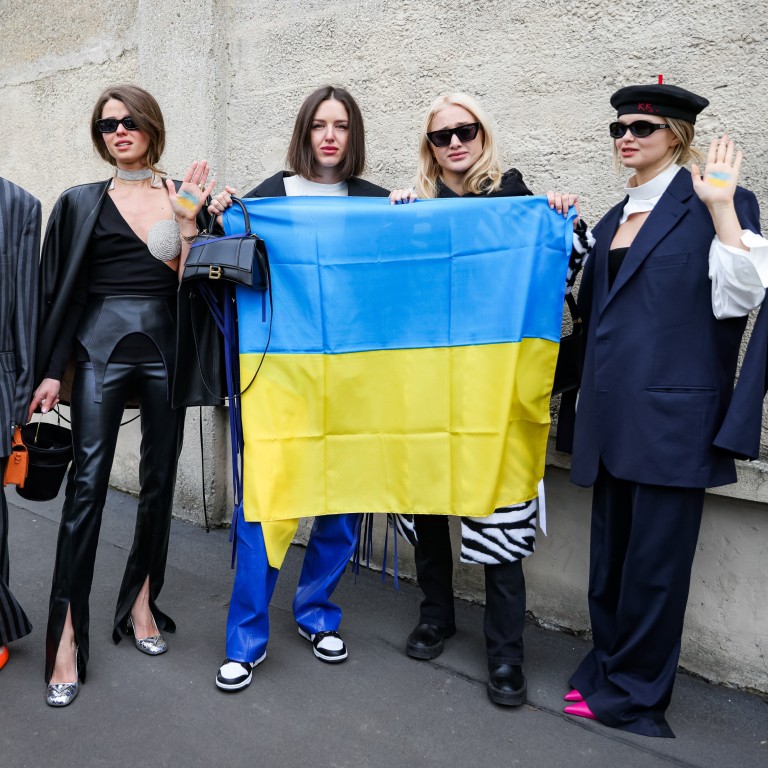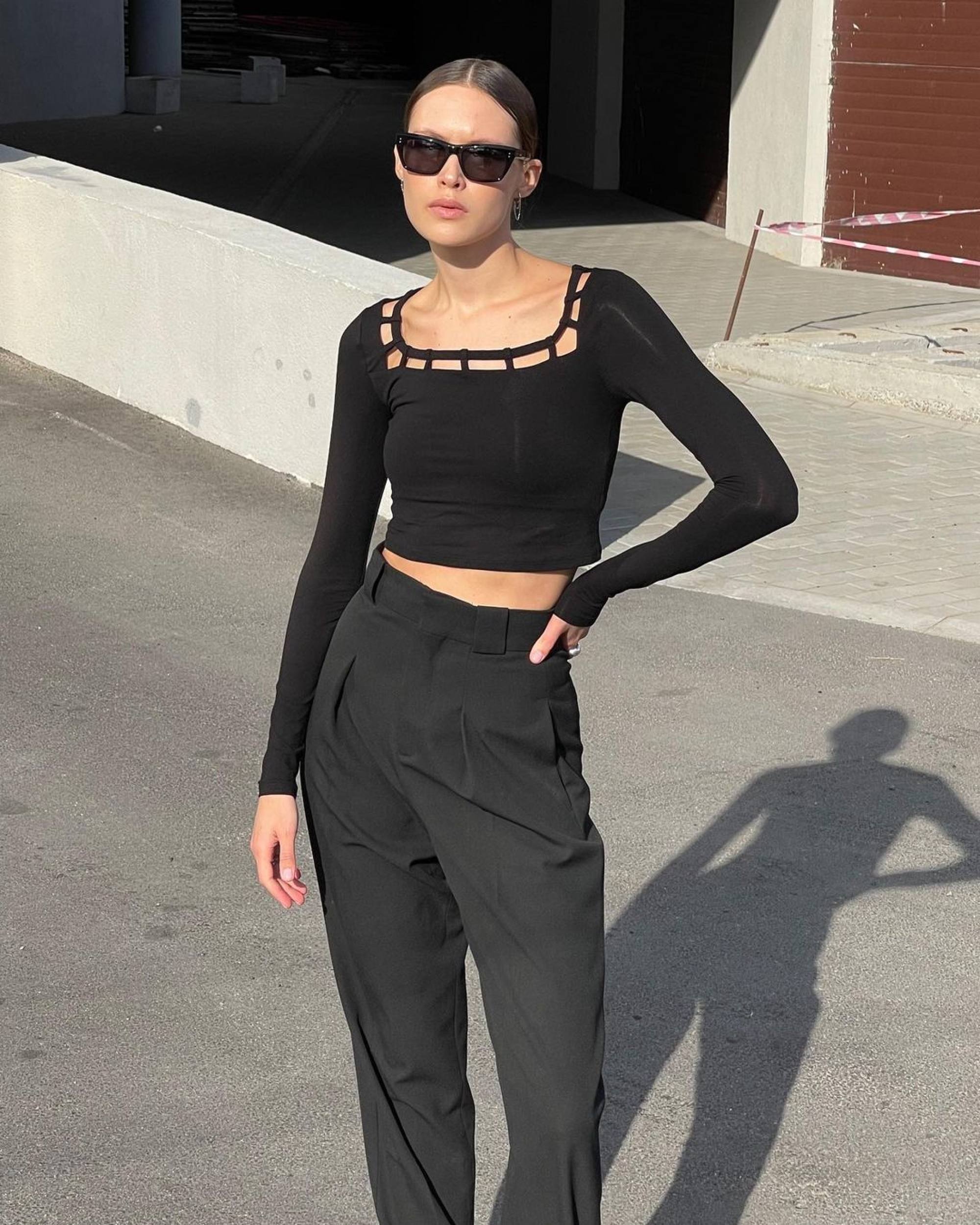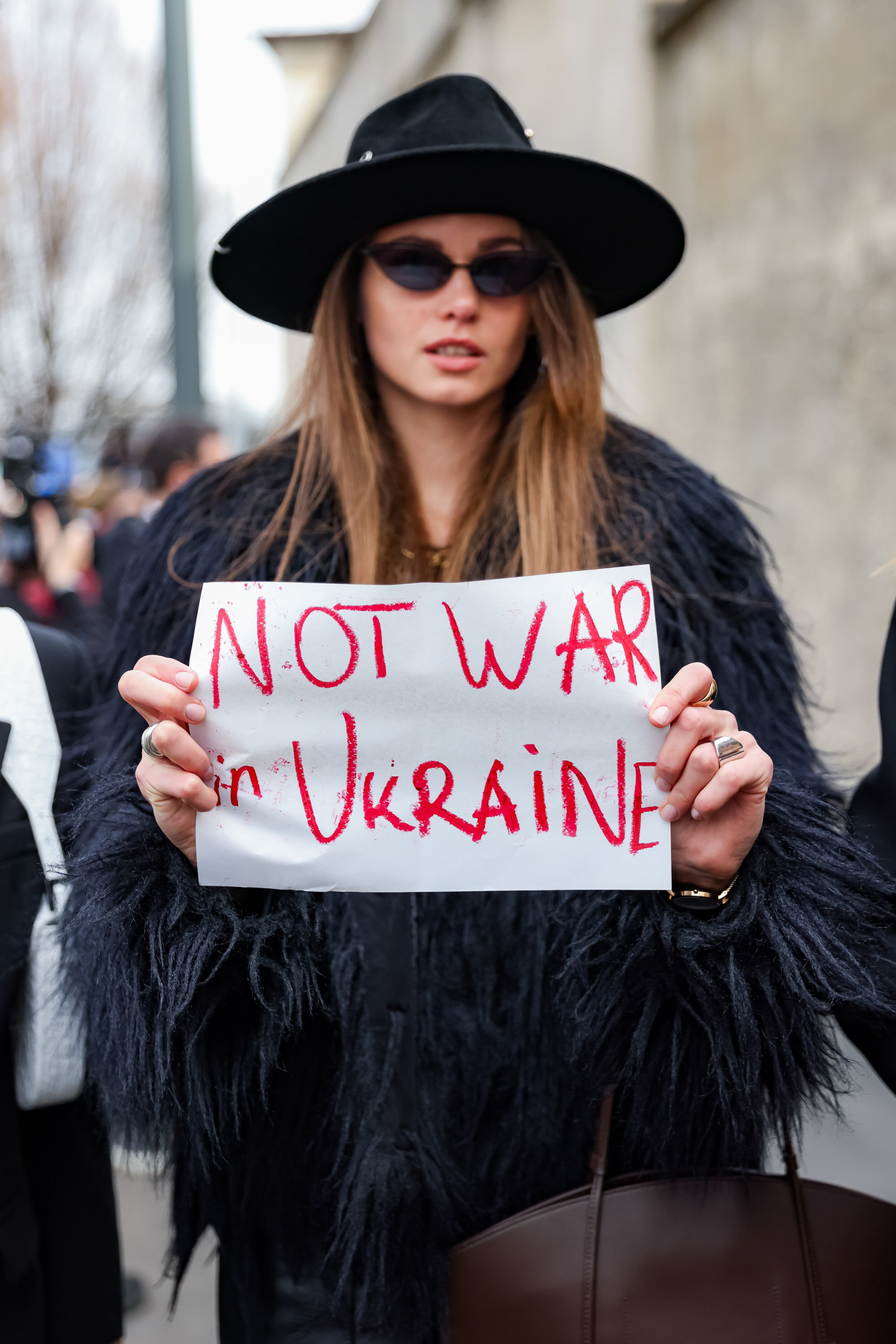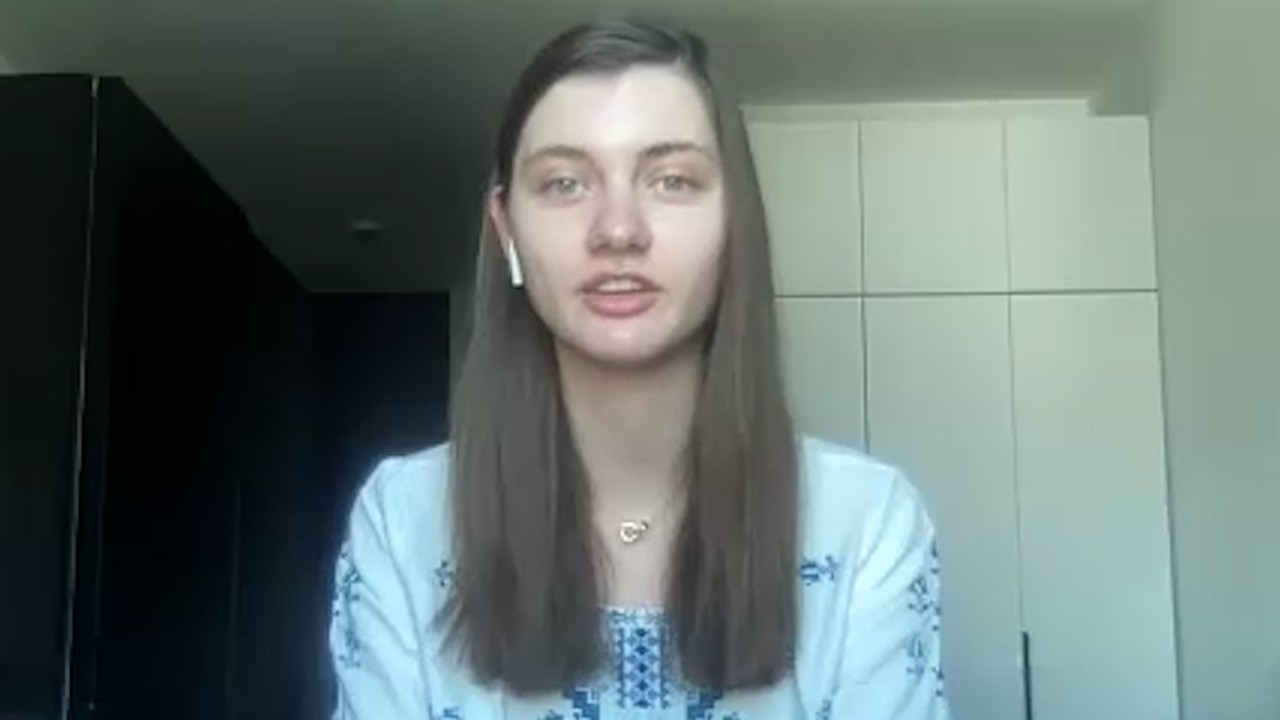
Amid Ukraine crisis, are fashion brands doing enough? Luxury groups including LVMH join H&M, Nike, Asos, Ganni, Nanushka in taking a stand on Russia
- As fashion weeks unfolded in Europe it seemed like business as usual for brands, but some luxury groups eventually fell into line and will stop sales in Russia
- Data suggests that Russian luxury spending is not nearly as important as it used to be, as countries such as China and South Korea take over
Ukrainian designer Olha Norba was on one of the last planes out of Kyiv – going, of all places, to fashion week. It was February 23 and she boarded a flight to Milan with a suitcase filled with her wares. The next morning she woke up in the Italian fashion capital to hear her home city was under attack and that her family was fleeing Russian forces.
Fashion has to tread a difficult line in moments such as these. A multibillion-dollar industry can hardly stop selling and marketing its designs, but the publicity and attention it generates puts brands under pressure to put out a definitive statement as soon as possible.
After a few days of resounding silence, some companies began to speak out. Balenciaga was one of the first, posting a single image of support for Ukraine on an otherwise empty Instagram grid. Ahead of its upcoming Paris Fashion Week show, the brand said it “would open our platforms in the next few days to report and relay the information around the situation in Ukraine”. It also made a donation to the World Food Programme.
Perhaps more importantly, labels including fashion crowd favourite Ganni and Hungarian brand Nanushka said they would no longer send goods to Russia. YNAP – the parent company of Net-a-Porter – followed suit, as did H&M, Nike and British company Asos.
“We have respect for the Russian people and our partners,” said Nanushka’s CEO, Peter Baldaszti, who was sitting in the front row of a Milan Fashion Week show when news of the invasion of Ukraine broke. “We know this is not their decision, but it is impossible to do business with Russia based on our moral values.” He went on to describe it as “a significant financial decision” for the still independent brand.
As the fashion crowd moved on from Milan to Paris, in many ways it was business as usual at first.
Yes, the show music choices were a little more sombre, and yes, most people were keeping their Instagram posts to a minimum, but pressure grew on designers to use the platform generated by their catwalk shows to show solidarity with Ukraine.
Luxury fashion groups, such as Gucci owner Kering, promised to make a significant donation to Ukrainian refugees, but only on March 4 did they announce that they would halt operations in Russia.
Birkin bag maker Hermės and Cartier owner Richemont were the first to announce they planned to temporarily close stores and pause business operations in Russia, followed by LVMH, Kering and Chanel.
Luxury giant LVMH, which owns such brands as Christian Dior, Givenchy, Kenzo, TAG Heuer and Bulgari among others, will close its 124 boutiques in Russia from March 6 but will continue to pay the salaries for its 3,500 employees in the country.
French multinational Kering, whose brands include brands as Gucci, Saint Laurent, Bottega Veneta and Boucheron among others, has two shops and 180 employees, which the company will continue to support.
Richemont, which also owns Dunhill, Jaeger-LeCoultre, Montblanc, Piaget, and Van Cleef & Arpels among other brands, has around a dozen directly operated stores, mostly in Moscow. It said in a statement it had suspended commercial activities in Russia on March 3 after stopping Ukraine operations on February 24. Chanel said it would “temporarily pause its business in Russia”.
Swiss watchmaker Swatch Group, which owns high-end watch and jewellery labels including Harry Winston, said it would continue its operations in Russia, but was putting exports on hold “because of the overall difficult situation”.
“Closing these stores is important, very important in fact,” Norba says. “This war can only be won if Russia changes from the inside. The system and the Russian government have to wake up.
“When the people of Russia find they can’t fly to Paris or buy the clothes they have always bought in the past or use Apple Pay, they will start to wonder what kind of system this is.”

So why were major brands slow to announce they would close their Moscow and St Petersburg stores? There is a lot of money to be made from Russian clients, and the front rows of both Paris and Milan Fashion Weeks had empty spots where groups of well-off Russian women would usually be sitting.
Luxury brands will miss the head-to-toe post-catwalk orders these clients would make – but it won’t cripple them, as data suggests that Russian expenditure on luxury goods is now small compared with China or other Asian countries such as South Korea.
Morgan Stanley, for example, estimates that Russian nationals account for less than 2 per cent of worldwide sales for Kering and Richemont, including Russian spending abroad.
China’s links to Russia leave it exposed as Ukraine attack backfires, experts say
“The importance of Russia and Russian nationals for the luxury goods sector has gone down over the years and is now relatively immaterial,” said Morgan Stanley analyst Édouard Aubin to Vogue Business. “Counter-intuitively, the less homogeneous a society is [in terms of equality], the lower total luxury spend will be, and vice versa.
“Worldwide, the growth of the luxury goods industry is now driven by the middle- to upper-middle class.”

That said, reports are coming out of wealthy Russians spending their savings on luxury goods before the rouble crashes and sanctions take their toll – hence major brands delaying closing their doors as sales of luxury jewellery and watches increased.
While labels grappled with what to do, Paris Fashion Week continued. For now, while borders remain shut and war rages on, Norba and her sister will stay in Milan.
“Of course it’s hard to see people doing all this fashion stuff,” she says. “We want to scream, ‘How could you continue with this nonsense while our world is on fire?’, but of course we did the same when there were conflicts in other parts of the world.
“Life has to continue, even though it will never be the same for us.”
Additional reporting by Reuters


